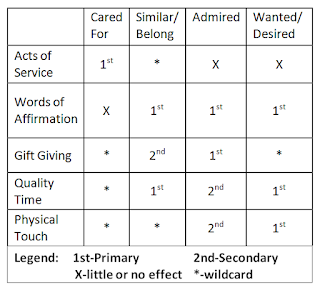To the Afflicted,
Some of today's society believes that Justice and Fairness are the same thing. However, even the usage of the phrase of a decision being "Fair and Just" indicates this is not the case. They are certainly related, but they are definitely different.
An old and essential definition of Justice is rendering what is due. When we argue if someone's case is just, we argue whether or not they deserve something or not. When putting someone on trial, we are trying to argue what sentence they deserve to get. However, the question becomes "How to determine was is just?" That is where fairness comes into play, by which I argue to be "
judging by the same standard for different people/things."
An apt analogy for Justice and Fairness is that
Justice is paying someone the correct price for an item while Fairness is using the same scale to determine the price for different people. If we measure some tea leaves and I pay some amount, but someone buying the exact same amount of the same tea after me is measured to be charged more, that would be considered unfair. Another example would be when someone cheats in a game, that's unfair because he's not playing by the same rules. One more example is a just decision would be to send criminals charged with the exact same crime to jail, but if the sentences are different lengths, then it can be considered unfair but not unjust depending on circumstances (for example two different judges, different levels of remorse, mercy, etc.).
Why do we often consider unfairness to be the same as injustice? There are a few reasons. One is that we believe it is due to us to be judged on the same standard we perceive. This is common when it comes to siblings. If one child gets something, another may assume he should get it too because they are both children of the same parents (perceived standard), not necessarily because of something he did or need (actual standard). Another reason is that unfairness can lead to injustice. When someone cheats in a game, his opponent is not receiving his due respect in fair play and his due prize can be stolen from him.
Now even though a standard is how we initially judge justice, we must be careful of the standards we use because they may be unjust. How is this possible? It's due to the nature of higher standards. Perhaps the best way of thinking of this is in terms of what justice is most often associated with; Law.
According to a local law, punishment may be due to someone, but if that law contradicts a higher law, such as the constitution, then that would be opposed to real justice. This is important because lower laws often eliminate mercy and goodwill. I argued before that
Mercy and Justice get along because Justice cares about order and balance. If someone is willing to forgive an injury, the relationship is put back into proper balance despite the perpetrator not paying restitution. Likewise, if a shop owner decides to give me a discount because of goodwill towards my father for some help he gave, it could be a fulfillment of justice. Of course, this idea of justice is dependent on using Love as the high standard.
I argue that Love is the standard we should prioritize. I have written about the
multiple definitions of love before, but in this case and pretty much every time I mention it, I'm referring to the caring definition by which "one wills the good of another." When you judge by using the standard of Love, then you judge based off the perfection of man that I argued for before in
proving the universal moral code, and in doing so, you help advance the perfection of others. I like to think that that would be both fair and just.
With Love,
N. D. Moharo
